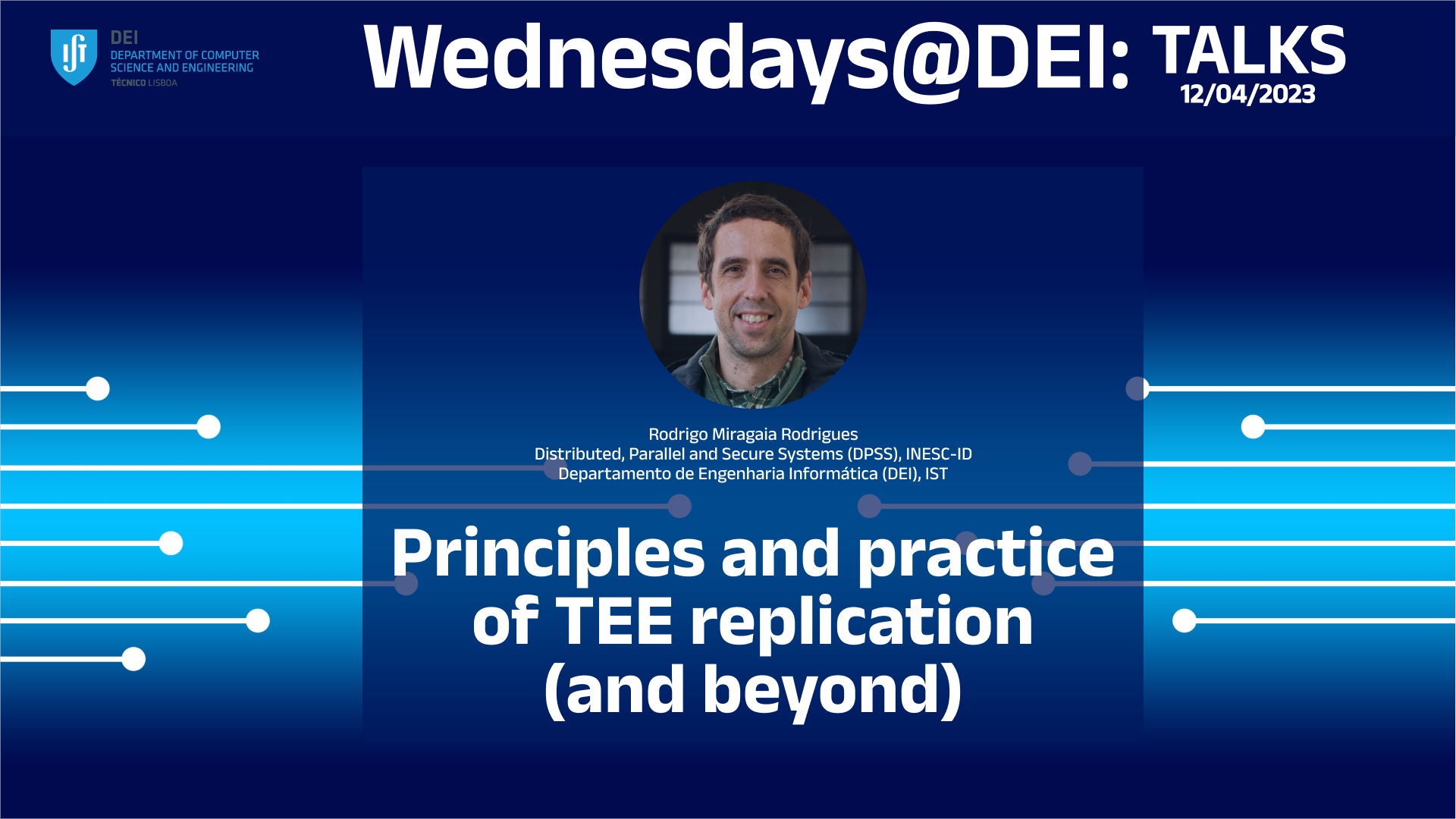Wednesdays@DEI: Talks, 12-04-2023

Author and Affiliation: Rodrigo Miragaia Rodrigues, Distributed, Parallel and Secure Systems (DPSS), INESC-ID
Departamento de Engenharia Informática (DEI), IST
Title: Principles and practice of TEE replication (and beyond)
Abstract: Trusted Execution Environments (TEEs) ensure the confidentiality and integrity of computations in hardware. Subject to the TEE's threat model, the hardware shields a computation from most externally induced fault behavior except crashes. As a result, a crash-fault tolerant (CFT) replication protocol should be sufficient when replicating trusted code inside TEEs. However, TEEs do not provide efficient and general means of ensuring the freshness of external, persistent state. Therefore, CFT replication is insufficient for TEE computations with external state, as this state could be rolled back to an earlier version when a TEE restarts. Furthermore, using BFT protocols in this setting is too conservative, because these protocols are designed to tolerate arbitrary behavior, not just rollback during a restart.
In this talk, I will present the restart-rollback fault model for replicating TEEs, which precisely captures the possible fault behaviors of TEEs with external state. Then, I will show that existing replication protocols can be easily adapted to this fault model with few changes, while retaining their original performance.
In particular, we adapted two widely used crash fault tolerant protocols—the Attiya, Bar-Noy, Dolev read/write register protocol and the Paxos consensus protocol--to the new fault model. Furthermore, we leverage these protocols to build a replicated metadata service called TEEMS, and then show that it can be used to add TEE-grade confidentiality, integrity, and freshness to untrusted cloud storage services. Finally, time permitting, I will preview our ongoing work that highlights the power and generality of this model by applying to conventional replicated storage systems, to address a pending tension between performance and durability guarantees.
